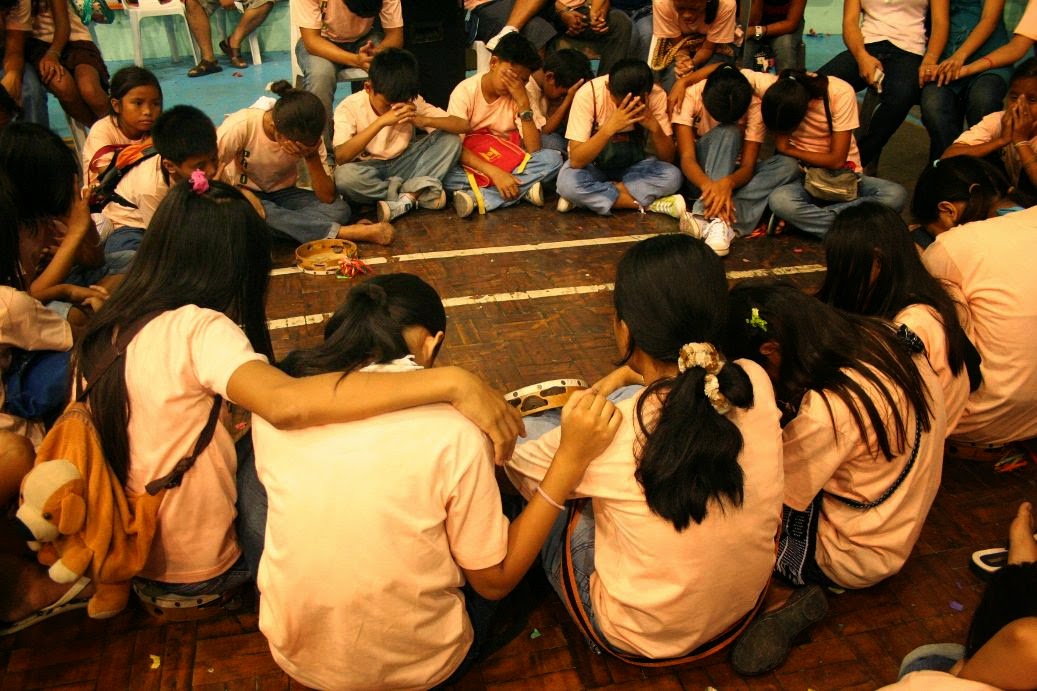So much can be said about Philippine culture, but its most important element is the Philippine values. This video was taken from YouTube. There are two reasons why this video would attract audience. First, it uses pathos. The pictures, especially those showing happy faces, invoke a sense of happiness to the audience. Even if it's not their happiness, they will feel it because happiness is like a bottle of perfume. Once you spray it, it spreads throughout the whole room. Second, the people, especially the Filipinos, will be able to relate to the video since it is about them.
15 years ago today, my family decided to leave our home country, Taiwan, to live in the Philippines. I had a hard time fitting in because the Taiwanese culture does not apply here, but as time passed by, I started understanding the traditions, practices, and values of the Philippines, and because of that, I started appreciating my life here. In Taiwan, respect to elders, hard work, hospitality, and family ties are practiced, but what I did not see in Taiwan but noticed in the Philippines are unity, optimism, and fear for God.
One of the values shown in the video and in the picture above is bayanihan or helping one another. A single person can not move the nipa hut by himself or herself, but with the help of others, with unity, it is possible. Humans are social beings. We are all created to help, love, and care for one another, and the Filipinos fully understand this point. That is why they love outings with friends -- what they call pagsasama-sama. Also, they are willing to help their neighbors when they have problems.
Second, the Filipinos have the ability to stay optimistic despite their circumstances. It's quite hard to believe, but the pictures above are victims of typhoon Yolanda. They lost their homes, their properties, but they still manage to smile. It's one of the qualities I look up to as a Taiwanese.
Lastly, I also admire the Filipinos' fear for God. It was only here when I learned about God. It takes a lot of faith to believe in a Being who cannot be seen, heard, touched, felt, or tasted, and the Filipinos have that faith. Their sincerity when in prayer is something I've never seen elsewhere.
The Filipino values is something I look up to, and I hope that once day I can also be a Filipino, not by blood, but by heart.
Others might say that the Filipinos have negative values such as the bahala na and the ningas cugon (Gorospe, V, n.d.). The bahala na is a trait of the Filipinos which basically means it's okay already, let whatever happen happen, but Jose Rizal noted that this is not necessarily a bad trait because it shows the Filipinos' trust for God. It's not "let whatever happen happen", but "let whatever God desire happen". Ningas cugon is another bad trait of the Filipinos, which is the tendency to delay their duties until the deadline approaches. This again, may seem like a bad trait; however, sometimes being too hardworking may not be a good thing. Relaxation is necessary, too, for the well-being of a human being. Working too hard may mean sacrificing the health of the person. The Filipinos may delay their duties, but they still accomplish their duties in the end, and they will not be stressed out since they had enough rest and relaxation.
Although the video accurately portrays the Filipino values, there are two biases. One is that it assumes that all Filipinos have these values, but that is not the case. The values of a person is dependent on his or her upbringing, and that differs per person. Nonetheless, most Filipinos possess these values. The other is that only the positive traits are shown. As stated above, there are negative traits as well. Nobody is perfect, so negative traits are inevitable.
This video was made to encourage the Filipinos to continue uplifting these values. Also, it serves as a basis for comparison for the other countries. As critical thinkers, perhaps the other countries will evaluate their values, and modify them to what they think is appropriate for their people.
Sources:
Gorospe, V. R. (n.d.). Understanding the Filipino Value System.
Retrieved from:
http://www.crvp.org/book/series03/iii-7/chapter_vi.htm
Mendoza, J. (2012, May 27). Positive Filipino values [video file].
Video posted to:
https://www.youtube.com/watch?v=VIWw8EGndQw





Hi Yu Wen. It's good that you also appreciate other culture like the PH. Your reflection is comprehensive which is very good. - Ms Maffy
ReplyDelete